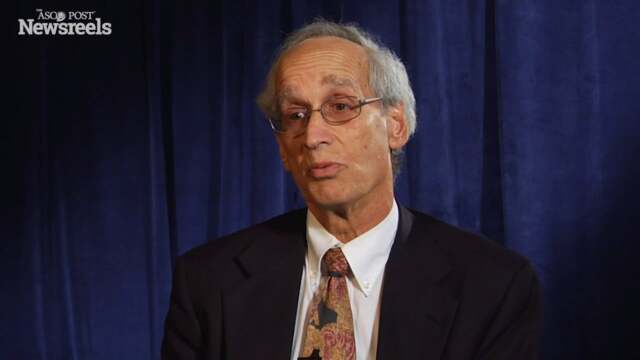Jay Harris, MD, on Making Sense of Conflicting Data on Breast Irradiation
2015 ASTRO Annual Meeting
Jay Harris, MD, of Dana-Farber Cancer Institute and Brigham and Women’s Hospital, discusses the difficulty reconciling recent important trials on radiotherapy for breast cancer: The Z11 trial suggested that breast tangents are sufficient, while MA.20 and EORTC studies suggested that full nodal irradiation is beneficial.
Supriya Chopra, MD
Supriya Chopra, MD, of Tata Memorial Hospital, discusses results of the PARCER study, which compared conventional 3D conformal radiotherapy to image-guided intensity-modulated radiotherapy in reducing bowel side effects for women with cervical cancer (Abstract 8).
Howard M. Sandler, MD
Howard M. Sandler, MD, of Cedars-Sinai Medical Center, discusses how adding 24 months of daily antiandrogen therapy during and after radiotherapy was shown to significantly improve long-term overall survival following prostate cancer recurrence after a radical prostatectomy (Abstract LBA5).
Joel E. Tepper, MD
Joel E. Tepper, MD, of the University of North Carolina School of Medicine, discusses the ways in which SBRT has changed radiotherapy, as demonstrated in key studies presented at this year's meeting on stereotactic body radiotherapy for liver metastases and hepatocellular carcinoma, and borderline resectable and unresectable pancreatic tumors (Abstracts 253, 255, 351, 357).
Alysa M. Fairchild, MD
Alysa M. Fairchild, MD, of the Cross Cancer Institute and the University of Alberta, discusses her study on the use of dexamethasone to reduce pain flare in patients receiving palliative radiotherapy for bone metastases (Abstract LBA6663).
James B. Yu, MD
James B. Yu, MD, of Yale School of Medicine, summarizes the plenary lecture on results from the NRG Oncology/phase III study comparing two fractionation schedules for low-risk prostate cancer (Abstract LBA6).





